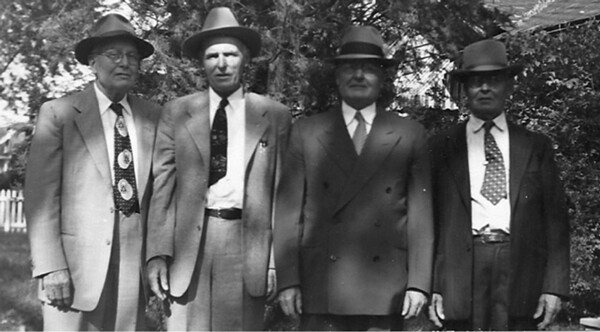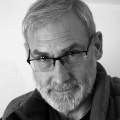On Being a Student Until the Day I Die

My Dad, who did not expect to make it much past age 50, put it my head that I would live the long life of my Mother’s family. That was about the time President Kennedy called on America to shoot for the Moon within the decade. Anything seemed possible. I decided to shoot for a hundred years.
I think mine remains a worthwhile goal. A friend from college succeeded at his goal of making a million dollars by age 30. The last time I saw him he was popping nitroglycerine tablets like candy. He died shortly after achieving his goal.
Forty years on, I’m a year shy of 70. My target still lies 31 years ahead of me. That’s plenty of time to do something useful but if recent predictions are true every coastal metropolis I've ever visited will be under 6 feet of water. If the Earth takes a nosedive to dystopia I’ll be riding it out.
What’s kept me animated so far is a maxim I heard at age 17 attributed to the gadfly Socrates. It’s 2300 years ancient but still fresh as a daisy: “the unexamined life is not worth living.” Its guided me for fifty years and might for the next thirty. It’s what I most enjoy. Being a student
A couple of my favorite Americans might have been following this advice. Abraham Lincoln did not let his embarrassment with a meager formal education stop him. He was an autodidact (meaning self taught) from the law to literature, history, science, newspapers and the Bible of which he was a great skeptic.
Another such skeptic was Mark Twain who always hovered just shy of blasphemy and worse yet, social commentary. John Wilkes Booth deprived Lincoln of the retirement he hoped would let him travel the world. Twain, who’s writing Booth would have found as disagreeable as Lincoln’s, did travel overseas as a young man. He wrote copiously about it. Before I visited Jerusalem three years ago I picked up “Innocents Abroad” and read Twain’s pertinent chapters. Such examination has preceded all my recent travels. My nose is always buried in a book or newspaper or my cell phone.
I have a knack for recalling when, where and from what source I collected much of what I’ve read For instance, I was in high school fifty years ago when I read about Saudia Arabia in my Senior Scholastic magazine. The nation’s oil wealth was so prodigious that its prince’s guaranteed that no male citizen would ever be saddled with a job. I pondered what kind of nation would emerge from such fortunate circumstance. Fifty years on it’s become a nation which brings Far East Asia’s poor to do the heavy lifting. I would be a lousy Saudi citizen. I hate to have others pick up after me.
Fifty years is an eyeblink and I’m now well into my second eyeblink. By that reckoning Twain’s trip to Jerusalem was just three eyeblinks in the past. The life of Jesus was 40 eyeblinks ago. Even Minnesota’s “glaciers” are but 240 blinks in the past. Before that a mile of ice rose up over the Duluth Airport. It only took 80 eyeblinks for it to melt.
Many people living out their eyeblink are too busy to notice the world changing around them. That’s because today is always more pressing than tomorrow.
I remember when the Earth passed 3 billion people. When I was in grade school school atlases showed African and South American jungles as huge swaths of unexplored territory. Now much of that forest is burning illegally to make cattle ranches. In the Amazon’s case this will yield up soon to be infertile land with soil an inch deep. That’s a far cry from the loam which lies many meters thick ove America’s Midwest.
Perhaps a paved over, species poor Earth will still allow humans to achieve the Biblical "three score and ten" (20+20+20+10 years) which is far short of my goal. Mark Twain lived a bit longer than that and correctly predicted that he would die with the return of Haley’s comet. It was the same omen that had heralded his birth 76 years before. My goal is more numismatic. I was born smack dab in the middle of the 20th century - 1950. My Haley's comment would be the turn of the calendar to 2050.
In 1950 the world was my oyster. From now on, I get to watch my grandson’s oysters taken away from them. Socrates didn’t promise that the examined life would be good one. Still, it should be a fascinating eyeblink.
Harry Welty may or may not have been elected to the Duluth School Board as of this writing. In either case, no longer a candidate, he will resume “Not Eudora” named after a far more exalted author named Welty.
